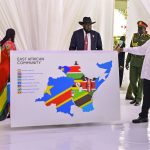Published on 30/04/2025
Ministry of Finance has revealed that Uganda waived taxes amounting to UGX 3.609 trillion in the financial year 2023/2024 through various tax exemption measures and waivers.
The primary beneficiaries included Members of Parliament, security personnel, judicial officers, and private companies.

This revelation is contained in the Tax Expenditures Report for FY2023/24, released by the Ministry on April 22, 2025. However, the Ministry cautioned that the actual figure could be higher due to data limitations in capturing exemptions across various sectors.

“The analysis indicates that revenue foregone due to tax expenditures in FY2023/24 amounted to UGX 3.609 trillion, equivalent to 13% of the total tax collected during the period,” the report states. “Over the past five financial years, the value of revenue forgone has increased in nominal terms—from UGX 2.467 trillion in FY2019/20 to UGX 3.609 trillion in FY2023/24—representing a 46% rise. This is lower than FY2022/23, when foregone revenue stood at 2.0% of GDP. The decline is largely attributed to reduced VAT deemed revenue due to tighter administrative controls by the Uganda Revenue Authority (URA).”
The report further notes that due to data and modelling limitations, the reported figures may understate the actual value of revenue foregone. “Adequate data is not available to calculate the revenue impact for some provisions identified as tax expenditures in the relevant tax laws. These are included in the report without corresponding cost estimates.”
According to the Ministry, Customs Duty accounted for the largest share of the foregone revenue, totaling UGX 1.137 trillion or 32% of total tax expenditures. Value Added Tax (VAT) exemptions saw a decline from UGX 1.113 trillion in FY2022/23 to UGX 677.27 billion in FY2023/24—attributed to improved administrative efficiency in managing the VAT deeming regime.
Tax expenditures are defined as deviations from Uganda’s benchmark tax system that result in a reduced tax liability for certain taxpayers. These may take the form of exemptions, allowances, rate reductions, credits, or deferrals.
The report provides a detailed list of tax expenditure provisions, noting that some additional frameworks providing tax relief are not classified or costed as tax expenditures in the report.
Among the notable beneficiaries were security personnel—including members of the Uganda People’s Defence Forces, Uganda Police Force, External Security Organisation, Internal Security Organisation, and Uganda Prisons Service—whose exempted official income rose from UGX 284.11 billion in FY2022/23 to UGX 412.85 billion in FY2023/24.
Members of Parliament also benefited, with their non-salary emoluments exempted from income tax. This exemption increased from UGX 111.64 billion in FY2019/20 to UGX 135.74 billion in FY2023/24.
Overall, foregone revenue from Personal Income Tax grew from UGX 470.71 billion in 2019 to UGX 799.95 billion in 2023/24—a 70% rise. As a percentage of GDP, this increased from 0.34% to 0.40%.
Corporate Income Tax exemptions also increased from UGX 253.94 billion in FY2019/20 to UGX 326 billion in FY2023/24, a 28% rise. However, the Ministry noted that these estimates do not fully account for key exemptions, such as those arising from Double Taxation Agreements (DTAs) and incentives for investors in strategic sectors.
Among the major beneficiaries of Corporate Income Tax exemptions was the Bujagali Hydropower Project. Initially granted a five-year exemption up to 2022, the tax relief has since been proposed for extension to 2027 through amendments to Section 21(1)(ab) of the Income Tax Act, aimed at promoting clean energy production.
The Bujagali exemption alone cost Uganda UGX 100.04 billion in FY2019/20, UGX 90.73 billion in FY2020/21, UGX 89.52 billion in FY2021/22, UGX 94.05 billion in FY2022/23, and UGX 99.06 billion in FY2023/24.








